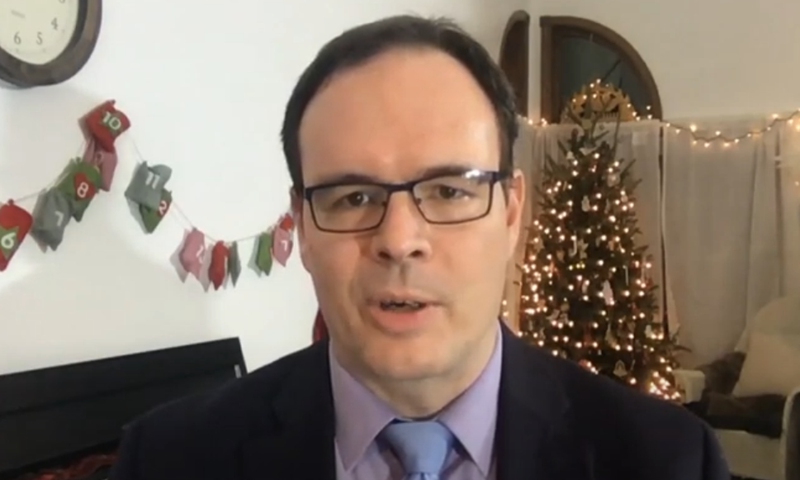UPDATE: Court accepts lawsuit of Xinjiang enterprise suing Adrian Zenz over 'forced labor' rumor

Adrian Zenz Photo: Screenshot of an online video
A local court in Kashi, Northwest China's Xinjiang Uygur Autonomous Region, has accepted the case of a Xinjiang local textile enterprise suing the notorious anti-China German scholar Adrian Zenz for fabricating "forced labor" rumors against the enterprise, a local news website reported on Friday.
Xinjiang Shache Xiongying Textile Company, one of a number of enterprises and individuals in Xinjiang who had appointed lawyers to sue German scholar Adrian Zenz (who calls himself Zheng Guoen in Chinese) in March, confirmed with local media ts.cn that the Intermediate People's Court of Kashi accepted the case on April 2.
Zenz has wrote articles fabricating and distorting facts, slandering the enterprise by claiming that it is involved in "forced labor," which seriously damaged the company's reputation and caused serious economic losses, the company said. It requests Zenz to stop the infringement, stop spreading rumors, apologize, and compensate the company for the losses.
Local companies filed a civil lawsuit in March, demanding that Zenz apologize, restore their reputation and compensate them for their losses.
Adrian Zenz, born in 1974, is an infamous anti-China pseudo-scholar. He is a German far-right fundamentalist Christian who believes he is "led by God" on a "mission" against China, member of the Victims of Communism Memorial Foundation, a far-right organization established by the US government in 1993, and senior fellow in a research group set up by the US intelligence community against the vocational education and training centers in Xinjiang.
In 2018 when he was still a faculty member of the European School of Culture and Theology at Columbia International University, Korntal, he has gone almost overnight from an unknown researcher into a go-to pundit on Xinjiang, as the US steps up its disinformation campaign against China.
In recent years, Zenz has produced multiple sensational "reports" on Xinjiang on social media platforms like Twitter, and fabricated false academic research on Xinjiang, in which he spread rumors such as large-scale monitoring of local ethnic minorities and forced labor of the Uygurs.
These false claims have been pursued by Western media. Misled by such rumors on Xinjiang, some countries and companies have reduced or even halted imports of cotton and cotton products from Xinjiang, causing some cotton farmers and cotton processing enterprises in Xinjiang to suffer great economic losses.
Global Times

